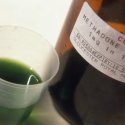What Happens in Cocaine Detox?
Cocaine addicts well know how uncomfortable drug withdrawal can be. When detoxing, withdrawal effects come on in full force, an experience that no regular cocaine user wants to face.
The truth of the matter is cocaine detox offers the only means for breaking the drug’s hold over the body. There’s no getting around this essential stage when trying to overcome addiction.
Attempting cocaine detox on one’s own will likely be an excruciating process overall. For this reason, many addicts turn to cocaine detox programs to help them make it through this critical stage. Cocaine detox programs offer the types of physical and emotional supports needed to overcome the damaging effects from long-term drug use.
Cocaine Withdrawal
During cocaine detox, addicts experience what’s known as the cocaine withdrawal syndrome. Any time a person uses an addictive substance for any length of time, the body starts to experience withdrawal when needed amounts of the drug are lacking. While different types of drugs do produce their own sets of withdrawal symptoms, cocaine withdrawal syndromes can be especially harsh, according to the U. S. National Library of Medicine.
Cocaine has a stimulant-type effect, forcing brain and central nervous system processes to work faster. Over the course of long-term use, cocaine disrupts chemical processes throughout these areas and eventually damages brain cells and bodily structures in the process.
The cocaine withdrawal syndrome results from the brain’s attempt to compensate for rampant chemical imbalances throughout the body. Considering the damage that’s taken place, the brain is working at a diminished capacity, which accounts for the uncomfortable symptoms experienced while detoxing. In effect, withdrawal symptoms reflect the widespread damage that’s taken place.
Physical & Psychological Effects

Cocaine detoxification treatment can help you cope safely and effectively with withdrawal.
The longer a person uses cocaine the more likely he or she will develop medical and/or psychological disorders as a result of the drug’s damaging effects. Whether medical or psychological, a co-occurring disorder will likely aggravate the discomfort a person experiences during cocaine detox.
For most people, withdrawal symptoms take the form of –
- Drastic fluctuations in body temperature
- Tremors
- Fatigue
- Aches and pains in the muscles and bones
- Depression
- Bouts of anxiety
- Confused thinking
- Restlessness
- Irritability
- Incessant drug cravings
As a general rule, the severity of the addiction determines how intense withdrawal symptoms will be.
Treatment Interventions
While it’s possible to detox on one’s own, cocaine detox programs are equipped to help ease the discomfort experienced during the withdrawal stage. These programs use medication therapies and counseling supports to help a person make it through the withdrawal process.
Other treatment interventions used include –
- Drug education training
- Nutrition-based meal-planning
- Vitamin and mineral replacement treatment
- Psychotherapy
- Exercise routines
- 12-Step support groups
As cocaine detox can quickly bottom-out a person’s emotional stability, treatment programs administer antidepressant medications to help relieve depression symptoms. In cases where full-blown depression and/or anxiety disorders have taken root, antidepressant and anti-anxiety medications can be administered accordingly.
More than anything else, these programs provide the needed emotional supports that keep a person motivated to get well, which can make all the difference in the world during the detox stage.
